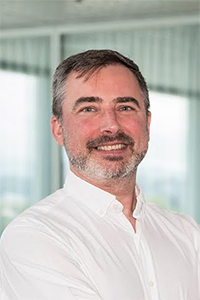
When Dr. Seabrook recounts his time in the BMLSc Program, he points to how his degree gave him the confidence to pursue his passion in research. Dr. Seabrooks shares how his BMLSc degree led him from Vancouver to Toronto and eventually Switzerland in pursuit of a career in scientific research.
What is your current career or current educational program?
I am currently residing and working in Switzerland as a clinical scientist.
If you are working, please describe what you do, in a few sentences.
As a clinical scientist I am involved in the design, writing, conducting, and data analysis of clinical trials. My focus is rare diseases. These diseases usually have insufficient research and a high unmet medical need, whilst predominately affecting children. To date, I have worked in large pharmaceutical companies, but currently work at a small biotech company.
What has been your journey, since graduating from the BMLSc Program?
After my BMLSc degree, I was accepted into the PhD program at the Department of Lab Medicine and Pathobiology at the University of Toronto. After graduation, I did a postdoc and was an instructor at Harvard Medical School. I then became a laboratory head/researcher in various pharmaceutical companies. I transitioned into clinical research, which allows me to be involved in research that may directly improve patient’s health. During this time, I also obtained a Masters degree in Clinical Research at the University of Liverpool.
How did your BMLSc degree help you to get where you are now?
My BMLSc degree directly helped me as it gave me a wide background in pathophysiology and laboratory methodologies. This helps me on a daily basis as I review and analyse subject data during clinical trials. As well, the undergraduate research projects which I performed with Drs Ong and Gyongyossy-Issa introduced me to research and helped me make my decision to apply for graduate school.
What is the most valuable experience you gained from the BMLSc Program?
The BMLSc Program helped me to obtain confidence to go further with my education. The support by the faculty and teaching staff was instrumental in allowing me to think that I could do graduate studies.
What is your favorite memory from your time in the BMLSc Program?
My favourite memory was discovering a group of laboratory technologists that were also interested in further education in our profession. This group was welcoming and very supportive of each other.
What is one piece of advice that you would give to BMLSc students and recent graduates?
Don’t be afraid to move beyond the lab and maybe even Canada. The world is wide open to you and is waiting to be explored.
Name one thing on your bucket list.
To do a hike around the base of the Matterhorn.
 Dr. Adeera Levin is a 2020 recipient of the UBC Medical Alumni Association
Dr. Adeera Levin is a 2020 recipient of the UBC Medical Alumni Association